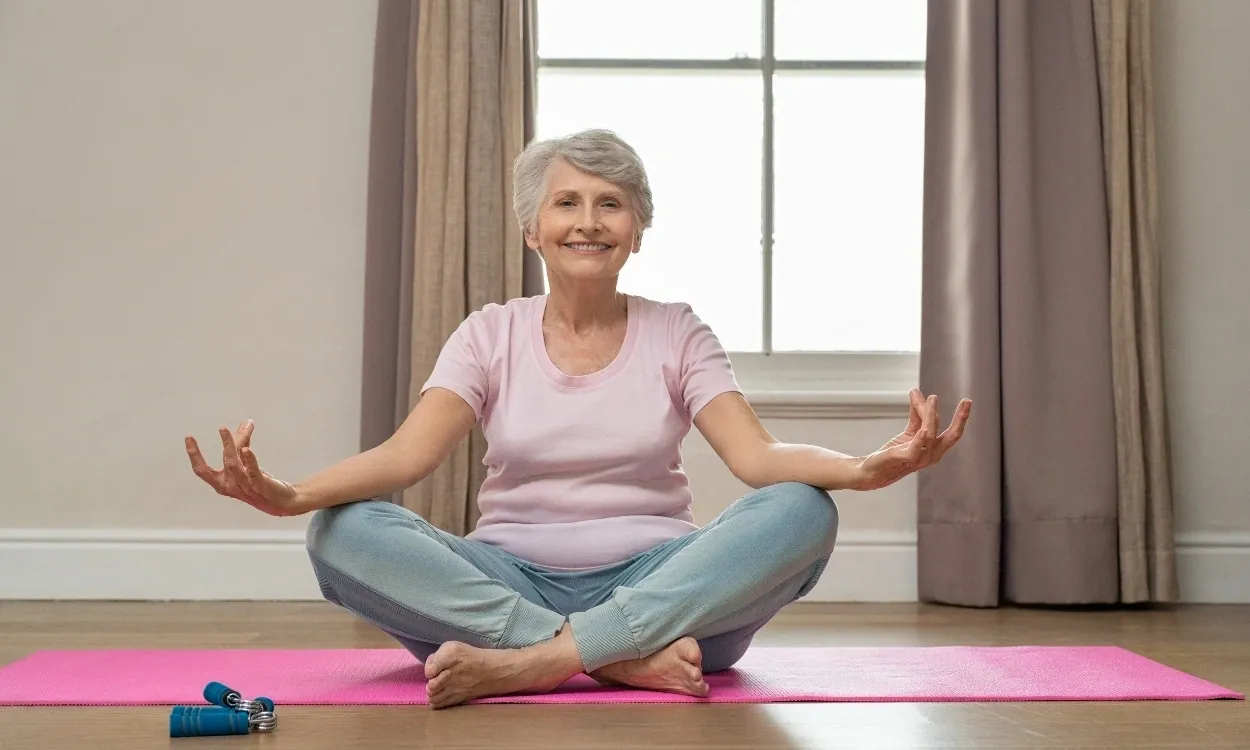In our fast-paced and ever-connected world, finding moments of peace and tranquillity has become increasingly crucial for our overall well-being.
Amid the hustle and bustle of daily life, one practice that has stood the test of time for its profound impact on mental and physical health is meditation.
In this comprehensive guide, we will explore the extensive benefits of meditation and provide you with a detailed roadmap to kickstart your meditation journey.
Understanding the Multifaceted Benefits of Meditation:
Meditation isn’t merely a passing trend; it’s a timeless technique celebrated for its myriad benefits.
Scientific studies have consistently shown that regular meditation can lead to reduced stress levels, enhanced focus, improved emotional well-being, and even physical health benefits such as lower blood pressure.
Stress Reduction and Mental Clarity:
One of the primary reasons individuals turn to meditation is its unparalleled ability to alleviate stress.
Through mindfulness meditation, practitioners learn to observe their thoughts without judgement, creating a mental space that promotes relaxation and clarity.
This newfound mental clarity extends beyond meditation sessions, influencing how individuals navigate the challenges of everyday life.
Emotional Well-being and Happiness:
Meditation is a powerful tool for cultivating a positive mindset and emotional resilience. By fostering self-awareness, individuals can better understand and manage their emotions.
Studies have shown that regular meditation can contribute to increased levels of happiness and life satisfaction.
Enhanced Focus and Concentration:
In a world filled with distractions, the ability to maintain focus is a valuable skill. Meditation exercises the mind, enhancing cognitive functions and sharpening concentration.
As you weave meditation into your routine, you may notice improvements in your ability to stay present and engaged, both at work and in personal endeavours.
How to Get Started with Meditation:
Embarking on a meditation journey may seem daunting, but the key is to start small and gradually build your practice.
Here’s a step-by-step guide to help you integrate meditation into your daily routine:
1. Find a Quiet Space:
If you don’t want to be disturbed, choose a peaceful location. This could be a corner of your living room, a cosy nook, or even a serene spot in nature.
2. Comfortable Posture:
Sit or lie down comfortably. You can use a cushion or chair for support. Strive to discover a posture that promotes relaxation while keeping you attentive and alert.
3. Focus on Breath:
Begin by paying attention to your breath. Inhale and exhale naturally. As you breathe in and out, notice how it feels.
Redirect your focus to your breath when your mind starts to wander.
4. Start Small:
Start with just a few minutes each day. Set a timer for 5-10 minutes initially, and as you become more comfortable with the practice, gradually increase the duration.
5. Use Guided Meditations:
If you’re new to meditation, consider using guided meditations available online or through meditation apps.
These can provide structure and support as you develop your practice.
The Journey to Inner Peace:
As you consistently incorporate meditation into your routine, you’ll likely begin to notice positive changes in various aspects of your life.
Improved concentration, reduced anxiety, and a greater sense of calm are just a few of the rewards that regular meditation can bring.
Conclusion:
Embarking on a journey of meditation is a gift to yourself. In the midst of life’s chaos, taking a few moments each day to connect with your inner self can lead to profound changes.
Whether you’re seeking stress relief, mental clarity, or simply a moment of serenity, meditation offers a pathway to a more balanced and centred life.
FAQ about Meditation:
Q1: How long should I meditate each day?
Start with 5-10 minutes and gradually increase as you feel comfortable. Consistency matters more than duration.
Q2: Can I meditate anywhere?
Yes! While a quiet space is ideal, meditation can be practised almost anywhere – at home, in nature, or even at your workplace.
Q3: Are there different types of meditation?
Absolutely. Mindfulness, transcendental, loving-kindness – explore different types to find what resonates with you.
Q4: Can meditation help with sleep?
Yes, many find that a consistent meditation practice can improve sleep quality and reduce insomnia.
Q5: How long until I see results?
Results vary, but many people experience positive changes within a few weeks of regular practice.
Meditation is a personal journey, and there is no one-size-fits-all method. Find what works best for you, and enjoy the transformative power of this ancient practice.






